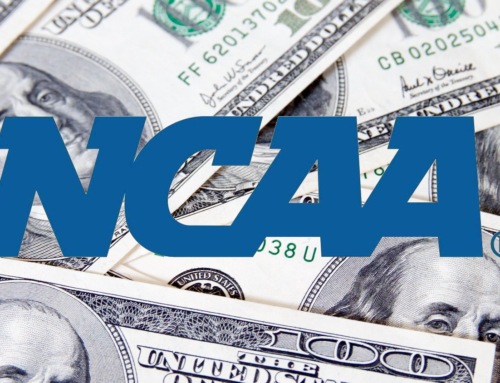Although they’ve faced their fair share of criticism in recent years, each year the Grammys live up to their marketing as “music’s biggest night.” For aspiring musicians, songwriters and producers, earning a coveted Grammy nomination is a major milestone in one’s career. Getting to the Grammy stage is a lofty task to say the least. Here, we look at the process involved in earning a Grammy nomination.
There are many misconceptions about the Grammys and their nominations process, many of which have led critics and music fans alike to hold a cynical impression of the event and the Recording Academy itself. However, once fully understood, the ways in which the Grammys assign nominations and awards is actually remarkably thorough. Of course, it all begins with the music itself.
Submitting your music to be considered for a Grammy nomination seems like a weighty task. However, it’s a relatively easy one. To submit your music, first you must ensure that you meet the eligibility requirements set forth by the Academy. One of the caveats that the Academy still holds is that your music must be commercially released and available for purchase in order for it to be eligible for a nomination. Secondly, you must be a member of the Recording Academy. Becoming a member is by far the most intricate part of the submission process for the Grammys. To become a member it’s imperative that you market yourself as a professional musician; that means having a professional website, marketing materials, recordings, and active social media channels. The Academy has been known to reject applicants who they feel aren’t committed to recording and performing music as a full-time career. Of course, if you’re considering submitting your music for a Grammy nomination, there is a good chance you’re already on the path to a career in music. Still, If becoming a member isn’t an option for you just yet, pre-existing members can also submit music on behalf of non-members.
Following the membership hurdle, submitting your music is as simple as entering the liner notes and relevant metadata on an internal membership website. Following this, you print out a confirmation form and mail a physical copy of your submitted music to the Academy.
The Recording Academy boasts a membership of over 21,000. This includes people from all areas of the music industry, including singers, musicians, producers, engineers, conductors, songwriters, arrangers, art directors, music video directors and other industry personnel. Each year, 12,000 of these members are tasked with deciding who will be nominated for Grammy awards. The group of 12,000 is eligible to cast ballots for Grammy nominations because they meet the criteria of having a total of six or more credits on a physical music release (or 12 credits on digital releases). This means that those that determine the Grammy nominations are mostly musicians themselves in some capacity or another.
Each year, these 12,000 members take part in a three-step voting process:
Firstly, entries are submitted for consideration. Eligible members are able to submit any musical release for consideration so long as it was released within the window of eligibility (usually running from October of the previous calendar year through to September). The Academy then sorts through these entries (of which there are usually more than 20,000) and ensures that each entry is assigned to the proper category with the proper credits.
Following this, 150 “star chamber of experts” from the aforementioned industry fields review the ballots to determine the final nominations.
Voting members of the Academy are then asked to review the final list. Voters choose one entry from each category (for a total of up to 20 categories according to their individual fields of expertise). Votes are then mailed to the Academy on paper ballots.
In order to get your name on a nomination ballot, there is an aspect of self-promotion to consider. Being an active member of your local music scene and with your local Recording Academy chapter can be a big help. Knowing people within the industry and having good working relations with your peers is an added step to having your name recognized on a nomination ballot for voters. Of course, your name likely won’t end up there at all though if the music isn’t up to snuff. The idea that anyone can buy their way into a Grammy nomination is perhaps one of the biggest misconceptions the Academy deals with.
Considering the above process, it becomes clear that those voting in each category are well-versed in the nomination fields. The Academy has explicitly ensured this by limiting voters in the number of categories they can vote in, which prevents members from voting in categories outside of their areas of expertise. While all voters can cast ballots in the four major categories (Best New Artist, Album of the Year, Record of the Year and Song of the Year) it is unlikely that a classical musician would cast a vote in determining who wins “Pop Album of the Year.”
Furthermore, to dispel one of the biggest misconceptions about the Grammys, nominations aren’t explicitly based on chart performance or, as is the case in 2019, streaming performance. Instead, nominations are based on peers acknowledging the work of their peers. In addition to this, nominations are not decided by a single group or solely by industry executives dividing nominations between major labels; there is a wide group of voting members, all of whom have different experiences within the music industry. These experiences are pooled together each year, and that is how nominees are decided upon.
Although Grammy winners each year can feel somewhat predictable and based on industry trends from the previous years, some of the awards’ major upsets have proved that the voting process is, for the most part, a fair and thorough one. Barbra Streisand’s stunned reaction as she announced Arcade Fire’s win for “Album of the Year” in 2011 comes to mind; it was followed by an expletive ridden social media campaign which wondered how a relatively unknown (at the time) Canadian band could win such a prestigious award. The answer was simply that their peers recognized their album The Suburbs as the best that year.
This year, largely in response to backlash from the president of the Recording Academy in 2018, the Grammys have changed the number of nominees from five to eight in the “major categories.” This was reportedly done in an effort to diversify the nominee group and include more nominees who otherwise might not have had a shot at these categories.
This year, the nominations do reflect these changes. For the first time, more female nominees are taking top spots than ever before – as is music’s most popular genre right now: hip-hop. Many of the nominees found in the major categories, including Drake , Post Malone and Cardi B, have racked up impressive sales and streaming numbers. However, as the process laid out above makes clear, this does not give them a lock on a nomination. Similarly, while there is no denying the impact that winning a Grammy can have on an artist’s career, it is no longer the only avenue to success in 2019. Being a popular artist on Spotify may not lead to a Grammy, and winning a Grammy may not lead to a massive increase in streams and sales. The great thing about the progression of the music industry, spearheaded by advances in technology, is the openness that has been established to find success in a variety of ways. We’ll still be watching this Sunday to see who takes home the coveted awards, but we can all breathe a sigh of relief knowing that “music’s biggest night” has less of an impact on music’s year ahead.











Leave A Comment
You must be logged in to post a comment.